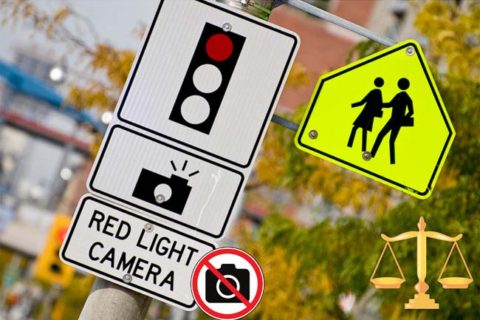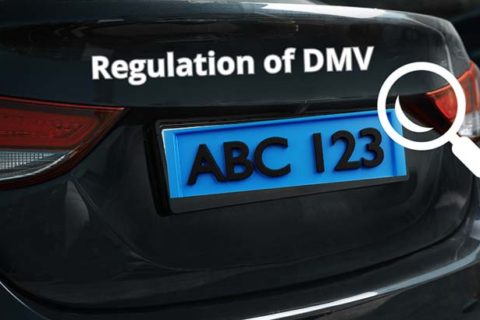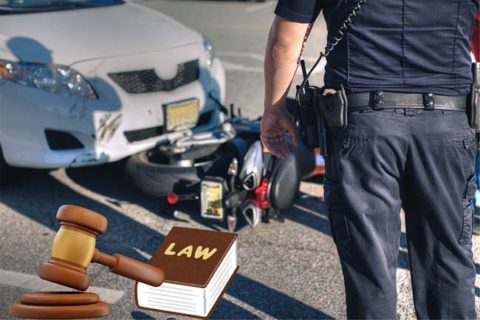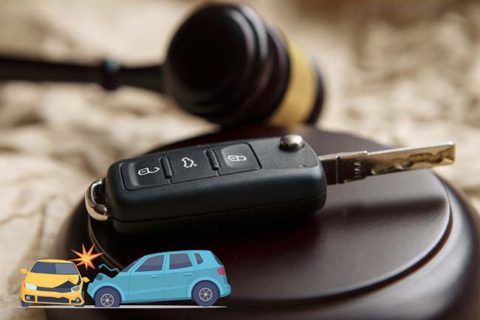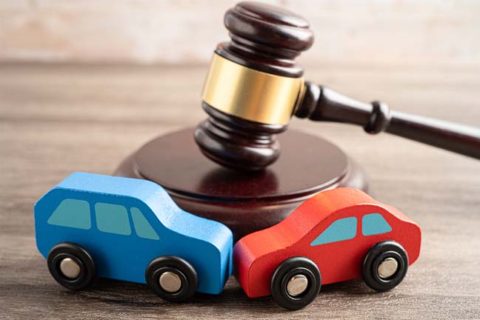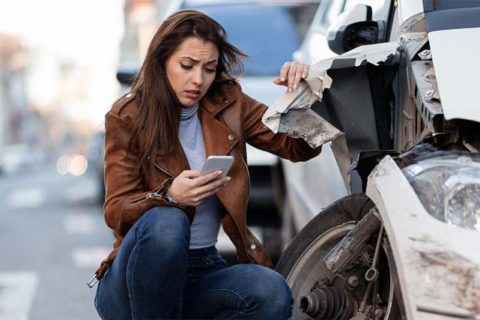In Virginia, driving a vehicle at more than 100 mph is considered a serious crime and falls into one of the reckless driving categories. Sure, you’ll receive a certain penalty later, depending on what type of reckless driving you commit.
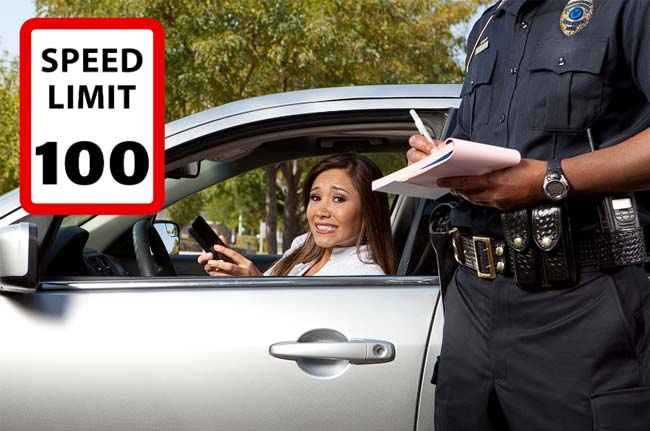
It’s very important for you to know and understand the extent of the so-called reckless driving offense, what consequences you may get, and how to avoid it and resolve your case.
Okay, here’s everything you can know about it!
What is Reckless Driving in Virginia?
Reckless driving is not just a traffic violation; it is instead a criminal offense. In Virginia, this is argued to be the most serious class of misdemeanor, giving the offenders various consequences and even serious long-term penalties.
The term “reckless driving” refers to the act of driving a vehicle on the road in a careless manner or at a speed exceeding the specified limit that could endanger people’s lives and/or property.
The general rule of reckless driving is found in Chapter 8 (Regulation of Traffic) of the Virginia Code, as stated in Section 46.2-852.
What Are the Types of Reckless Driving?
The state of Virginia has plenty of types of reckless driving, and these qualify for a class 1 misdemeanor. Each offense provides a different punishment based on the type of reckless driving.
The common reckless driving types that most people commit include:
-
- Driving a vehicle exceeding the permitted speed limit (§ 46.2-862).
- Driving due to failure to maintain control or brake failure (§ 46.2-853).
- Driving a vehicle on the highway regardless of whether or not it exceeds the speed limit (§46.2-852).
Of course, all of them will get different penalties, which are determined by a number of factors. Aside from them, some of the other types of reckless driving in Virginia also include:
-
- Passing when the view around is obstructed (§ 46.2–854).
- Passing two vehicles at once (§ 46.2-856).
- Passing at an intersection or railroad crossing (§ 46.2-858).
- Driving an overloaded vehicle that can interfere with view and/or control (§ 46.2-855).
- Driving a vehicle next to another in one lane (§ 46.2-857).
- Failing to give proper signals to other drivers (§ 46.2-860).
- Passing at a stopped school bus (§ 46.2–859).
- Driving too fast for traffic conditions and highways (§ 46.2-861)
- Racing (§ 46.2–864).
- Failing to yield right-of-way (§ 46.2–863).
Factors That Influence Whether a Case is Reckless Driving Offense
There’s no doubt that Virginia’s law enforcement agency will not immediately decide that your case is a reckless driving violation.
Of course, there are several series of investigations to truly prove that someone has committed the offense beyond a reasonable doubt. And they will take notice of several factors.
The following are several factors that determine whether or not you’re found guilty of a reckless driving offense:
-
Proof of driving a vehicle
It sounds simple, but sometimes it is difficult to prove that you actually drove the vehicle. It will be more complicated if the offenders are involved in a single-vehicle accident and there are no other witnesses.
-
Highway where the incident occurred
This factor is no less complicated because it confuses many people regarding the definition of a highway, which has a difference between the common use of the word and the Virginia Code section.
According to 46.2-100, a highway refers to a road used for vehicle travel purposes with the entire width between the boundary lines of each road or place open to public use.
Based on case law in Virginia, it is determined that a highway can be determined by the extent to which it can be used publicly for vehicular traffic.
-
Safety threat
The investigators must also be able to prove whether this violation endangers the lives, limbs, or property of other people. These factors must be proven beyond a reasonable doubt.
In some cases, someone was charged after an accident occurred, but officers were not present to witness the incident. In proving a case, the testimony of a witness can be used as strong evidence to explain how the accident occurred. It is important to note that accidents are not always caused by reckless driving.
What is an Exceeding Speed Limit?
Every individual who drives a vehicle in excess of the permitted speed limit will be charged with a criminal offense. And this is stated in § 46.2-862 in Article 7: Reckless Driving and Improper Driving of the Virginia Code, which says:
“A person is guilty of reckless driving who drives a motor vehicle on the highways in the Commonwealth (i) at a speed of 20 miles per hour or more in excess of the applicable maximum speed limit or (ii) in excess of 85 miles per hour regardless of the applicable maximum speed limit.”
(https://law.lis.virginia.gov/vacode/title46.2/chapter8/section46.2-862/)
Exceeding the speed limit means:
-
- If you drive at over 20 mph, regardless of the determined speed limit,.
- If you drive at more than 85 mph, what is the posted speed limit?
If so, you may be found guilty of reckless driving based on speed. In some cases, driving less than 30 mph but exceeding the 80 mph threshold will result in the officer charging the driver.
What Are the Consequences of Driving at Over 100 mph?
You’ll face very serious criminal charges if you’re found guilty of driving a vehicle exceeding the limit. When you are ticketed for driving over 100 mph, you may end up in prison.
There are several possible consequences of driving at over 100 mph, including:
1. You get jail time
Prison sentences are a more realistic type of consequence given to drivers caught speeding at speeds over 100 mph. But you’ll not automatically go to jail because law enforcement will carry out further investigations until they can determine whether you should get a prison sentence or not.
If you are threatened with jail for this offense, it’s best for you to hire an attorney to discuss your case. They certainly have a good understanding of how judges in your area handle these issues.
2. You’ll be fined
Reckless driving at high speed is a class 1 misdemeanor, resulting in your being fined, usually up to $2,500. But the exact amount of the fine varies and can depend on your offense record, the speed of your vehicle, and local jurisdictional policies, as well as many other factors.
In the majority of cases, the calculations of fines will usually be carried out like on a regular speeding fine, i.e., $6 for every mph over the speed limit.
Keep in mind that a ticket for reckless driving by speed cannot be prepaid. Instead, you will be required for court. If you do not appear, an arrest warrant may be issued.
3. Your driver’s license will be suspended
In some cases, especially for drivers who drive vehicles at twice the speed limit, a judge may decide to suspend your driver’s license. Just like a prison sentence, driving at speeds above 90 degrees will result in the suspension of your license, most likely even losing your CDL.
4. Your insurance premium may increase
An insurance company may increase their premium on customers who ever got involved in a traffic accident or have committed traffic violations, including reckless driving by speed.
Sure, there are several factors that determine an increase in someone’s insurance. To find out, you may have to talk with your insurance agent in order to know their reasons.
Some insurance surveyors reported that a reckless driving violation would increase the premiums on average by 21.8%. Assuming you’re paying your premium insurance at $100 per month, if you’re charged with this offense, it may become $261 more per year.
5. You have a driving criminal record
If you are proven wrong for reckless driving, you’ll be assessed 6 points on your driving record. And of course, your criminal record regarding traffic violations will be listed there permanently. They certainly cannot erase their criminal history from their criminal record.
6. You can lose your job
If you work on a shipment and really need a driver’s license, you may lose it after yours is suspended due to a reckless driving offense. Even if you have a CDL, it remains a consequence that gives rise to employment problems.
From the penalties above, which can have fatal consequences if you commit a reckless driving offense, you should be able to avoid them, right?
What Can You Do to Solve Your Reckless Driving Case?
Actually, there are a few solutions you can take to get out of your reckless driving issues. And even the solution can come from the judge. When you are demanded a certain penalty and your defense is strong enough to convince you, the judge may consider reducing your penalty.
There are some factors that the judge may view in your case, such as your driving records, whether the speedometer was correctly calibrated, and the specific number of miles per hour that exceeds the threshold you were driving.
The most effective solution for you is to hire a professional reckless driving attorney. Knowledgeable people can really understand the serious impact this violation will have on your life.
They will usually conduct a thorough investigation of you, from your arrest to the strategy they put together to win you over. Even if you are found guilty, their aggressive defense of you will probably result in the charges against you being dropped or reduced to a misdemeanor.

A bookworm and researcher especially related to law and citizenship education. I spend time every day in front of the internet and the campus library.
